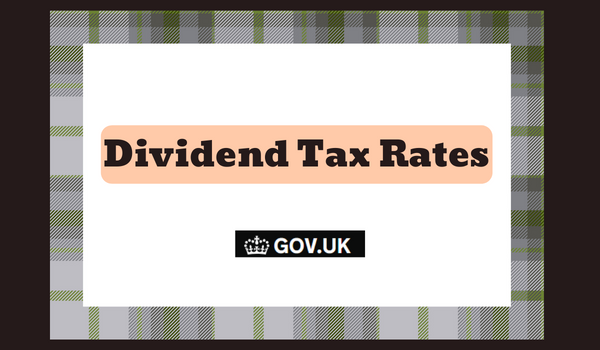Get to know the Dividend Tax Rates 2024: What Are the UK Dividend Tax Rates and How Much Do you pay from here. Dividends are not applied for personal allowances but on corporate profits. The taxable amount will be according to the Dividend Tax Rates that are decided by the Internal Revenue Agency.
Dividend Tax Rates 2024
The changes in the dividend majorly affect the investors, business owners and directors of a company. The tax pressure on the investors is considerable because of the reduction in the dividend allowance. They are not finding the exact reason to continue their investments. Let us know further about the alternate solution that the shareholders can implement.
The companies have to pay the taxes on the profits earned after submitting the Corporate Tax. The dividend will not be considered a business expense, but it is essential to pay at a fixed duration. Dividend Tax Rates in 2024 will be 8.75%, which would be the ordinary rate. This percentage will be for the amount ranging from more than 12,570 to 50,270.
|
Important Links |
The investors can prepare a portfolio in which the dividends are listed also the schemes if they have applied for any. This is the simplest way to reduce the taxable amount.
How to Pay Corporation Tax?
Every registered firm in the UK has to pay the relevant amount as a means of corporate tax. The companies must ensure that they are filing the tax return for every financial year to allow the UK Government to keep a record of the finances.

The payment has to be made to the HM Revenue and Customs Department. The taxpayers can either call or submit the return online. The payment details are confirmed within three days of filing the tax return.
What Are the UK Dividend Tax Rates?
The Director of the company has to declare the dividend by including the company name, dividend date, shareholder details, the total amount, and more. The information has to be entered into the company’s record.
| Income Tax Bands |
||
| Rate | 2024-24 Tax Rate | 2024-25 Tax Rates |
| Basic | £1 to £37,700 | £1 to £37,700 |
| Higher | £37,701 to £125,140 | £37,701 to £125,140 |
| Additional | Over £125,140 | Over £125,140 |
| Income Tax Rate | 2024-25 Tax Rate | |
| Basic | 20% | |
| Higher | 40% | |
| Additional | 45% | |
In the table above, we have discussed the income tax band and the rates, which are revised from the financial year 2024 to 2025. However, the dividend rates for the corporation are shared in the following table.
| Dividend Rates | ||
| Rate | 2024-25 Tax Year | |
| Ordinary | 8.75% | |
| Upper | 33.75% | |
| Additional | 39.35% | |
The taxable rates have been addressed for the corporations exactly the same as these were in the year 2024. The only thing that the directors have to remember is to enter the appropriate financial statements.
Decline in the Dividend Allowance UK
The Dividend allowance was £1,000 for the 2024-24 Tax Year, but in the following, the amount was reduced to £500. The decline in shareholder profit shows that the corporates need to work on the market value. The dividend allowance was £5,000 in the fiscal year 2028-19 but reduced to £2,000 and later £1,000.
|
Important Links |
The investors are in the middle now because they need to analyse the stocks, financial assets, and profits of the companies in which they would be investing. Obviously, when they are experiencing a downfall in the gains, it will be challenging for them to continue investing.
Ways to Avoid Dividend Tax
There are various tools available with which investors can avoid the annual tax rate. Some of these are discussed below:
- Venture Capital Trusts: If the investments are made for small businesses or companies, then this kind of tax advantage can be undertaken. For such growing firms, there would be less or no tax.
- Small Self Administered Schemes: This is a kind of pension that is provided to the company’s directors. This will help the investors in avoiding the tax.
- The Enterprise Investment Scheme and Seed Enterprise Investment Scheme: Tax advantages are provided when the investments are made for the startups. The companies are naturally dealing with financial stability that allows the investors to avoid paying the taxable amount.
- Individual Savings Accounts: ISA Contributions are a way for investors to save money from capital gain and other taxes.
These were some of the schemes that the investors can implement according to the losses that they have experienced in the past financial years.